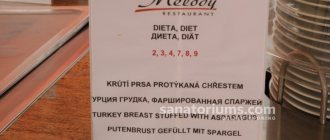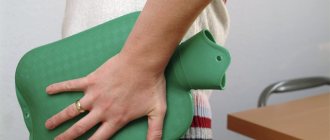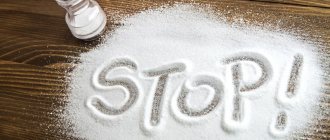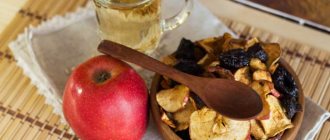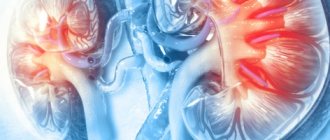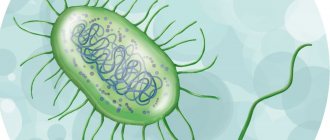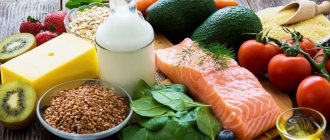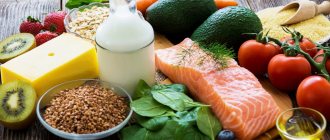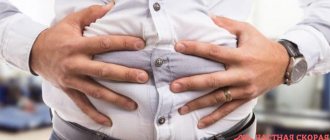Medical editor: Zemereva N.Yu., physiotherapist April, 2020.
Pyelonephritis is an inflammatory disease of the kidneys that affects the calyces and pelvis of the organs.
Pyelonephritis, like all inflammatory processes, can be acute with a sharp and significant increase in temperature, symptoms of intoxication and pain in the lumbar region, and chronic, when the disease periodically, especially if the diet is not followed, goes from the stage of remission to the stage of exacerbation.
Basic nutrition rules
The goal of the diet for pyelonephritis is
- sparing kidney function, creating optimal conditions for their work,
- normalization of metabolism not only in the kidneys, but also in other internal organs,
- lowering blood pressure,
- reduction of swelling,
- maximum removal of salts, nitrogenous substances and toxins from the body.
According to the table of treatment tables according to Pevzner, the diet for pyelonephritis corresponds to table No. 7.
The general characteristic of treatment table No. 7 is a slight restriction of proteins, while fats and carbohydrates correspond to physiological standards. In addition, the diet should be fortified.
Daily amount of essential nutrients:
- carbohydrates 400-450 g, of which up to 80-90 g. Sahara;
- proteins – 80 g, of which 50-60% should be animals;
- fats – 90-100 g, of which 25% are vegetable;
- free liquid up to 2-3 liters.
The daily calorie intake for pyelonephritis is 2400 – 2700 kcal.
Food processing
Any food processing is allowed. Dishes can be boiled, baked, fried (but frying is moderate), since with pyelonephritis it is not the digestive tract that suffers, but the urinary system. Food with pyelonephritis should not be crushed.
Diet
Meals should be 4-5 times a day, which allows you to maintain a constant level of nutrients and vitamins in the body and facilitates the elimination of metabolic products by the kidneys.
Limiting salt
Inflammation of the kidney tissue during pyelonephritis leads to disruption of the filtering and excretory functions. That is, it becomes difficult to remove toxic substances from the body and preserve beneficial ones. Sodium ions, the excess of which must be excreted from the body, are retained, which leads to edema, increased blood pressure and contributes to the formation of kidney stones.
Food is prepared without salt; at the discretion of the doctor, 2-6 grams are given to the patient. salt for adding salt yourself.
Quitting alcohol
With pyelonephritis, it is strictly forbidden to drink alcohol, as it creates an increased load on the kidneys, as a result of which the removal of nitrogenous and other metabolic products from the body slows down. In addition, alcohol causes fluid retention in the body, which causes swelling and aggravates the disease.
Food temperature
The food temperature is normal, 60-70 degrees. There are no restrictions on temperature conditions.
Products for alkalinizing urine
An acidic environment is favorable for the development of pathological microorganisms, so it is necessary to consume large quantities of foods that shift the urine pH to the alkaline side (fruits, vegetables, milk).
What not to eat if you have kidney disease
Diet number 7 involves excluding the following foods and dishes:
- fatty meat and poultry, fried and stewed meat dishes without prior boiling;
- any meat, fish and mushroom broths, as well as those based on legumes;
- sausages, smoked meats and canned food (fish and meat);
- fatty fish, including smoked and salted fish, fish roe;
- legumes in any form, including soy sauce;
- marinades and pickles, pickled vegetables and fruits;
- fatty cheeses, refractory fats;
- chocolate, cocoa and strong coffee;
- from vegetables: radish, radish, spinach, sorrel, garlic, onion;
- mushrooms;
- meat, fish and mushroom sauces, mustard, pepper, horseradish, spicy and fatty snacks;
- mineral water containing sodium;
- purchased pastries and bread (salt is also added during their preparation), some types of pasta, during the production of which salt is added.
Prohibited foods for pyelonephritis
The diet for pyelonephritis prohibits all foods that irritate the urinary tract and have a stimulating effect on the nervous system.
Since the excretory function of the kidneys is impaired, free fluid is limited.
They also reduce the amount of animal protein (meat, fish), since protein oxidizes urine.
It is also worth excluding products containing extractive substances, large amounts of oxalic, uric acid and essential oils.
Easily digestible carbohydrates are consumed with caution (they create an acidic environment in the urine, which is favorable for the growth of bacteria). For the same purpose, legumes are limited.
The list of prohibited products includes:
- rich broths and soups made from them (meat, fish, mushroom); after boiling, the water should be drained and new water should be added, bringing the meat and fish to readiness; soups made from legumes are also not recommended;
- bread and flour products with added salt;
- fatty fish, as well as smoked and salted fish, caviar, seafood;
- canned meat and fish, sausages, sausages, especially fried or grilled, smoked products;
- fatty meats, fried and stewed meat without prior boiling;
- all legumes, onions, garlic, radishes, radishes, sorrel and spinach are sources of uric acid, canned vegetables (salted, pickled, pickled);
- mushrooms in any form;
- sauces from meat, fish and mushrooms, pepper, horseradish, mustard;
- sharp and fatty cheeses;
- animal fats (pork lard), cooking fats;
- strong coffee (natural and instant), strong tea, mineral water with sodium salts, cocoa;
- chocolate, cakes, pastry creams, high-fat sour cream.
Diet for pyelonephritis in children and pregnant women
The diet for pyelonephritis in women during pregnancy and in children with this kidney disease corresponds to treatment table No. 7, but it is worth increasing the amount of fortified foods consumed. This is due to the increased need for vitamins in growing children and expectant mothers, who are characterized by reduced immunity and vitamin deficiency.
It is contraindicated to eat foods that irritate the urinary system. It is recommended to avoid using:
- fatty meat, dairy products and fish;
- mushrooms of all types and methods of preparation;
- strong coffee, tea, alcohol;
- pickled, salted and pickled vegetables;
- legumes, spinach, onions, garlic;
- spicy seasonings
Treatment cannot consist only of diet, but a proper diet in combination with drug treatment will help you recover faster and avoid complications.
Attention!
This article is posted for informational purposes only and under no circumstances constitutes scientific material or medical advice and should not serve as a substitute for an in-person consultation with a professional physician.
For diagnostics, diagnosis and treatment, contact qualified doctors! Number of reads: 3337 Date of publication: 11/22/2017
Urologists - search service and appointment with urologists in Moscow
Authorized Products
The list of products allowed for pyelonephritis includes those that facilitate the functioning of the kidneys, alkalinize urine, promote the removal of toxic substances from the body and have an antiallergic effect.
During the diet, patients with pyelonephritis increase the volume of fluid consumed, which flushes the urinary tract, mechanically removes pathogenic microbes from the kidneys, and also frees the body from toxic substances.
Also, the diet should be enriched with vitamins, the content of which in food increases due to fresh vegetables and fruits.
Milk and dairy products are not only a source of animal fats, but also shift the pH of urine to the alkaline side. Since pyelonephritis is often accompanied by anemia (the filtering function of the kidneys is impaired), the menu for pyelonephritis includes foods that increase hemoglobin.
The list of permitted products includes:
- drinks: fruit drinks (especially cranberry), green and weak black tea, herbal teas, jelly, mineral waters with low sodium salts, juices, rosehip decoction;
- yesterday's bread without salt, products made from yeast dough (pancakes, pancakes);
- low-fat varieties of poultry, meat and fish after preliminary boiling;
- milk soups, vegetable broth and cereal soups;
- zucchini - have a diuretic effect, pumpkin, potatoes, herbs (dill, parsley), carrots, beets, salads from boiled or fresh vegetables;
- eggs (no more than 1 per day), preferably boiled and steamed omelet;
- milk and lactic acid products;
- pasta, preferably small (vermicelli);
- cereals as sources of minerals and vegetable protein (buckwheat, oatmeal);
- vegetable and unsalted butter;
- fresh fruits and vegetables, compotes, jelly, mousses made from them, jam, honey, fruit ice cream, melons (diuretic effect);
- boiled fish, fried or baked after boiling, jellied, stuffed fish;
- tomato, sour cream, vegetable, milk sauces, small amounts of vinegar, citric acid, vanillin, cinnamon.
Diet for acute pyelonephritis
If acute pyelonephritis occurs, which must be treated in a hospital, the patient is recommended to eat only fresh fruits, vegetables and berries for the first few days. Drinking plenty of fluids (up to two liters per day) is also recommended. You can drink juices and decoctions. For a diet for acute pyelonephritis, fruits and vegetables, which have a strong diuretic effect, will be useful. Cucumbers, melons and watermelons, parsley and zucchini have similar properties.
After a week, a vegetable-dairy diet is prescribed, it is recommended to significantly limit the amount of salt consumed per day to three grams, and the main diet should be fresh vegetables and fruits. You need to drink natural juices and compotes. When the patient is no longer bothered by the main symptoms of exacerbation of pyelonephritis, the diet allows you to include fish, meat and cottage cheese in the menu.
The need to follow a diet
Following a diet for pyelonephritis facilitates the work of diseased kidneys and reduces the load on all organs of the urinary system.
The main effect of the treatment table for kidney inflammation is the anti-inflammatory effect, which facilitates the course of the disease and accelerates recovery or the onset of remission in a chronic process.
Limiting salt in food helps remove fluid from the body, which not only flushes the urinary tract, but also prevents the formation of edema.
Compliance with the treatment table for pyelonephritis normalizes blood pressure and water-electrolyte balance, which is the prevention of complications of the disease.
In addition, the diet for kidney inflammation has a desensitizing (anti-allergenic) effect, which is especially important when taking medications.
Medical nutrition enriched with vitamins strengthens the immune system and helps the body quickly cope with pathogenic microflora.
Diet for pyelonephritis in adults: table No. 7
Diet No. 7 for pyelonephritis according to Pevzner is characterized by the need to consume an increased amount of fluid per day, at least one and a half to two liters. Diet rules also suggest:
- frequent split meals up to 6 times, since regularity of meals allows you to evenly remove processed foods;
- the energy value of consumed products per day should not exceed 2700 kcal;
- salt-free diet, the amount of table salt in food is strictly limited;
- increasing the dose of ascorbic acid, vitamins B and P;
- meat and fish products must be boiled;
- There are no restrictions on food temperature;
- consumption of cereals and pasta is allowed;
- you can eat fruits and berries, including raw ones;
- The consumption of lactic acid products is allowed.
Diet recommendations for cystitis and pyelonephritis
Pyelonephritis is often accompanied by a concomitant disease such as cystitis (inflammation of the bladder). At the same time, a diet is introduced for pyelonephritis and cystitis, excluding fried, smoked, spicy, salty and sour foods. You also need to give up alcoholic drinks and coffee, increase the volume of water you drink to 2-2.5 liters, especially if you have an elevated temperature. Experts recommend drinking vegetable juices (exception: tomato juice), herbal teas (bearberry, kidney), fruit drinks and mineral calcium chloride water.
